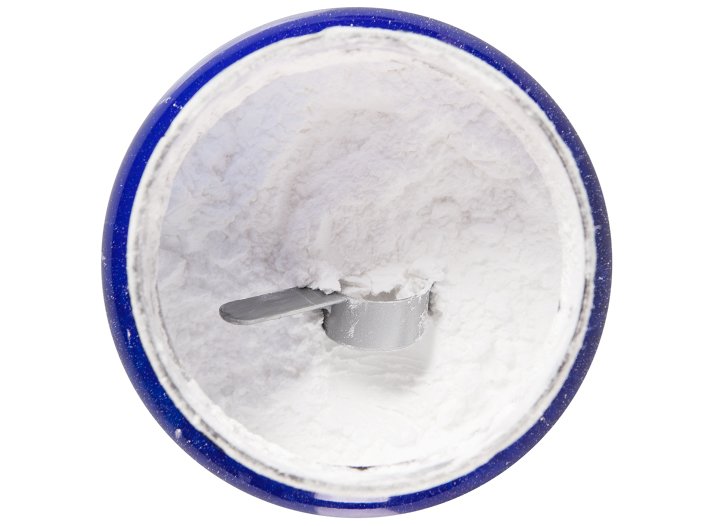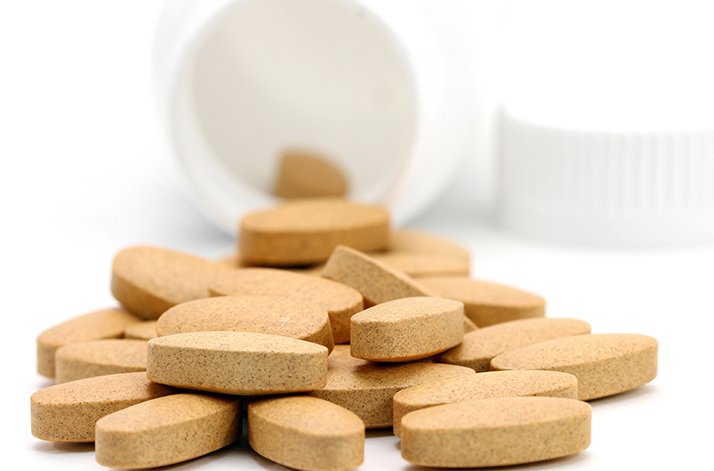
4 Supplements To Maximize Your Gains From Protein
Protein powder should be a staple in everyone's supplement stack. But if you're ready to take the next step and add to your stack, our recommendations can get you one step closer to your goal.
A good protein supplement is one of the most powerful weapons in any athlete's arsenal. It provides a fast-digesting source of amino acids (and calories) that can help fill in nutritional gaps and aid the repair and recovery of your muscles. It also stimulates muscle protein synthesis, the process that allows your muscles to grow bigger and stronger!
Adding in one (or a few) other supplements on top of your protein may help to improve your response to training, leading to even greater gains made over time. To maximize your response, though, it's critical that you tailor your supplement regimen to your individual needs and focus on those supplements that are most likely to help you.
So, after you get your tub of protein, where would your extra supplement money best be spent to maximize your progress?
Goal Set a new PR in the gym
Supplement to add: Creatine
Serious lifters know that if they want to take their training to the next level, adding creatine to their supplement stack is a must. This muscle-building, power-enhancing supplement has mountains of evidence suggesting it is both safe and effective.
In the body, creatine is responsible for meeting lightning-fast increases in energy demand, like those seen during high-intensity exercise and weightlifting.1 Supplementing with creatine allows you to train longer before stores are depleted and recover more quickly between sets.

Athletes engaging in strength/power sports stand to gain the most from supplementing with creatine. A recent study published in Nutrients reported significant improvements in back-squat strength when participants loaded with creatine (5 grams of creatine four times a day) for six days.2 Creatine has also been shown to lead to greater improvements in bench-press strength and overall weightlifting performance than resistance training alone.3
Having both creatine and protein in your supplement stack can lead to superior increases in training volume during your workouts while giving you the nutrients you need to recover. Together, this combo can help make your training program as effective as possible.
Recommended Products With Creatine
Goal Fight off fatigue during workouts
Supplement to add: Beta-alanine
During high-intensity training sessions, your body accumulates hydrogen ions, which lower your blood's pH levels and contribute to fatigue. Beta-alanine helps to increase your intramuscular store of carnosine, which acts as a pH buffer during intense exercise and can reduce fatigue during high-intensity exercise.4
Bodybuilders, sprinters, or anyone engaging in higher-volume training can benefit from this fatigue-busting supplement. Beta-alanine can help hold off those tired, sore, achy feelings so that you can get through the last reps, sets, or sprints of your workout. Add protein to the mix, and you may minimize recovery time, meaning you'll be ready to get back in the gym as soon as possible. This means more training days, more volume, and better results!
Recommended Products With Beta Alanine
Goal Maintain muscle mass during a "cut"
Supplement to add: Beta-hydroxy beta-methylbutyrate (HMB)
Consuming enough protein during a caloric deficit will go a long way toward maintaining muscle mass. But for added insurance, consider adding HMB to the mix. HMB is a byproduct of leucine, the amino acid responsible for stimulating protein synthesis. Yet the goal with HMB supplementation isn't necessarily to stimulate muscle growth; it's to slow muscle protein breakdown.

Research has reported that during periods of reduced caloric intake, supplementing with HMB can aid the reduction of fat mass while maintaining muscle mass.6 Combine that with the muscle-building effects of your protein powder, and you have the perfect combination for greater gains in muscle mass over time.
Additionally, taking a dose of HMB before an intense bout of exercise can help to reduce the immune response. This may result in less muscle damage, which then leads to shorter recovery time.7
Recommended Products With HMB
Goal Decrease recovery time between workouts
Supplement to add: Branched-chain amino acids (BCAAs)
BCAAs, especially leucine, are heavily involved in the regulation of protein synthesis, meaning they aid in the repair and recovery of your muscles. BCAAs can also improve workout intensity while supporting your immune system, making them a beneficial supplement for anyone subjecting themselves to strenuous exercise.8
Supplementing with BCAAs prior to intense exercise has been shown to reduce muscle soreness and several measures of muscle damage.9 Supplementing with BCAAs during activities of long duration, like marathons, has also been shown to improve mental performance when compared to a placebo.10 Because they bypass the liver and gut and go directly into the bloodstream, BCAAs can even be used as an immediate energy source during your workouts.
More energy, faster recovery, and greater rates of protein synthesis—do you need any more reasons to add BCAAs to your stack?
Recommended Products With BCAAs
References
- Greenhaff, P. L. (1997). The nutritional biochemistry of creatine. The Journal of Nutritional Biochemistry, 8(11), 610-618.
- Wang, C. C., Yang, M. T., Lu, K. H., & Chan, K. H. (2016). The Effects of Creatine Supplementation on Explosive Performance and Optimal Individual Postactivation Potentiation Time. Nutrients, 8(3), 143.
- Rawson, E. S., & Volek, J. S. (2003). Effects of creatine supplementation and resistance training on muscle strength and weightlifting performance. The Journal of Strength & Conditioning Research, 17(4), 822-831.
- Beck, T. W., Housh, T. J., Johnson, G. O., Coburn, J. W., Malek, M. H., & Cramer, J. T. (2007). Effects of a drink containing creatine, amino acids, and protein combined with ten weeks of resistance training on body composition, strength, and anaerobic performance. The Journal of Strength & Conditioning Research, 21(1), 100-104.
- Trexler, E. T., Smith-Ryan, A. E., Stout, J. R., Hoffman, J. R., Wilborn, C. D., Sale, C., ... & Campbell, B. (2015). International society of sports nutrition position stand: Beta-Alanine. Journal of the International Society of Sports Nutrition, 12(1), 1-14.
- Hung, W., Liu, T. H., Chen, C. Y., & Chang, C. K. (2010). Effect of beta-hydroxy-beta-methylbutyrate supplementation during energy restriction in female judo athletes. Journal of Exercise Science & Fitness, 8(1), 50-53.
- Townsend, J. R., Fragala, M. S., Jajtner, A. R., Gonzalez, A. M., Wells, A. J., Mangine, G. T., ... & Boone, C. H. (2013). beta-Hydroxy-beta-methylbutyrate (HMB)-free acid attenuates circulating TNF-alpha and TNFR1 expression postresistance exercise. Journal of Applied Physiology, 115(8), 1173-1182.
- Bassit, R. A., Sawada, L. A., Bacurau, R. F. P., Navarro, F., & Rosa, L. (2000). The effect of BCAA supplementation upon the immune response of triathletes. Medicine and Science in Sports and Exercise, 32(7), 1214-1219.
- Jackman, S. R., Witard, O. C., Jeukendrup, A. E., & Tipton, K. D. (2010). Branched-chain amino acid ingestion can ameliorate soreness from eccentric exercise. Medicine and Science in Sports and Exercise, 42(5), 962-970.
- Blomstrand, E., Hassmen, P., Ekblom, B., & Newsholme, E. A. (1991). Administration of branched-chain amino acids during sustained exercise—effects on performance and on plasma concentration of some amino acids. European Journal of Applied Physiology and Occupational Physiology, 63(2), 83-88.
